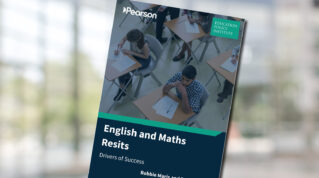Fresh fears have emerged that dozens of colleges may be snared by Labour’s private school fee VAT rules.
Government guidance on its finance bill, which is making its way through Parliament, says it is “confident” its current definition of a private school “does not capture” FE colleges.
However, the guidance also warns that FE colleges which have chosen to apply VAT rules set out in a complex 2020 tax court ruling involving the Colchester Institute “could” be counted as private schools.
It states: “[FE] Institutions can, if they choose to, apply the conclusion of the Upper Tribunal in Colchester, which would result in them treating the public funds they receive as business income.
“This could bring these institutions within scope of this policy, as this income would be treated as consideration for the provision of education.
“However, FE institutions should carefully consider this decision and ensure they understand what their new VAT obligations would be and the financial implications of this.”
There are about 30 unidentified colleges understood to have applied the rules from the 2020 ruling on a dispute between the HMRC and Colchester Institute.
A HMRC spokesperson told FE Week that colleges have until January 1 to decide whether to begin charging VAT for the first time.
Increased VAT cost risks
College income from fee-paying and government grant-funded students is currently exempt from VAT.
So being caught up under the new definition of a private school could have a significant impact on a college’s VAT returns.
Ian Brown, VAT director at S3TAX, said some FE colleges risk being “caught up” in this definition by HMRC.
He added: “How the government legislated for this surprised everyone, there’s an uncertainty around the risk for some FE colleges.
“Between Colchester, the private school legislation and HMRC’s application of VAT to private schools there’s uncertainty all around at the moment.”
What was the Colchester dispute?
The 2020 court ruling stemmed from a claim the Colchester Institute made for VAT paid on a large building project in the 2010s using a rule known as the ‘Lennartz mechanism’.
The result of the ruling – which set a precedent for similar cases – was that the tax treatment of grant-funded education shifted from being defined as a “non-business activity” to a “business activity”.
This change in legal definitions means that colleges no longer have the right to claim significant discounts on their VAT bills, known as “reliefs”, which include a zero rate for new buildings and a reduced rate for fuel and power.
However, soon after the 2020 ruling, HMRC said it acknowledged the court decision but would not impose the new rules on colleges while it mounted a new “test” appeal.
Following Colchester carries the risk of a large future tax bill, as HMRC vowed to “protect its position to secure tax revenues” and plans to take the case to the Court of Appeal.
Colleges already at a disadvantage
The dispute highlights wider concerns about the tax status of FE colleges, which suffer an estimated £200 million per year on irrecoverable VAT, leading to complaints that they are on an unfair financial footing compared to schools and academies which can reclaim VAT in full.
Julian Gravatt, deputy chief executive at the Association of Colleges, said apart from the Bank of England, colleges are the only public institutions that cannot reclaim their VAT, putting their students “at a disadvantage” compared to their academy counterparts.
He added: “Private school VAT rules add to the complexity and the HM Treasury October 2024 update helpfully exempts publicly funded institutions but leaves a doubt about those who entered into Lennartz arrangements and we’re awaiting clarification”.
Another layer of complexity
Socrates Socratous, a VAT consultancy partner at Buzzacott, told FE Week that private school legislation has added “another layer of complexity” to VAT rules for colleges, including those that specialise in special needs.
He said: “I think part of the problem may well be that the introduction of VAT on private school fees has been rushed through and its full implications haven’t been considered.
“The guidance that HMRC have issued is proving quite difficult to interpret because there are a lot of grey areas that they are sitting on the fence on.
“Private school VAT rules add to the complexity and the HM Treasury October 2024 update helpfully exempts publicly funded institutions but leaves a doubt about those who entered into Lennartz arrangements and we’re awaiting clarification.”

















Your thoughts